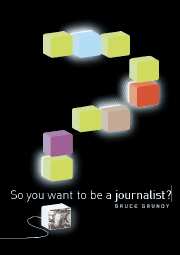Book contents
10 - Contempt
Published online by Cambridge University Press: 05 June 2012
Summary
Common law contempt
Now we begin to deal with matters that all journalists must know, whether they are court reporters or not. To begin, there is the issue of contempt of court, and here the landscape can be quite dangerous. There are landmines just under the surface and more than the odd pitfall into which the unwary may easily stumble.
Much of the law dealing with contempt of court in Australia is judge-made law … case law. The central issue involved is the expectation that a person accused of a crime should be able to get a fair trial. To go one step further, the expectation is that anything that interferes with a fair trial can be a serious attack on the delivery of justice or a contempt of the court. Indeed it goes further than that. Anything that may be seen as having a tendency to interfere with the delivery of justice may be regarded as a threat to the delivery of justice. And the law does not look kindly on anyone who would seek to interfere with the course of justice. Thus the law is inclined to frown on those who would deliberately, or inadvertently, interfere with an accused person's right to a fair trial. The unwary journalist may just be one of those.
As mentioned earlier, some years ago a newspaper reported the opening day of a trial in the local courthouse.
- Type
- Chapter
- Information
- So You Want To Be A Journalist? , pp. 233 - 254Publisher: Cambridge University PressPrint publication year: 2007



